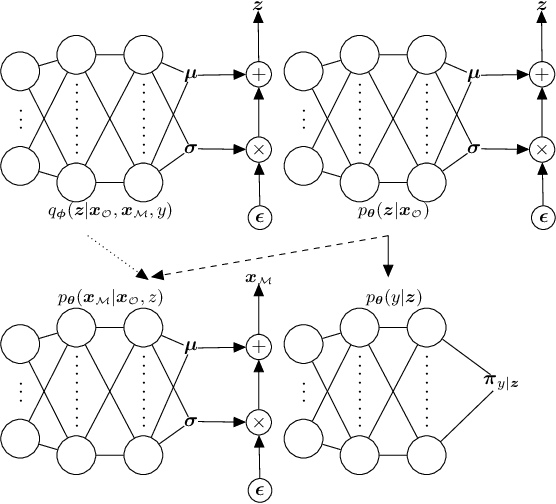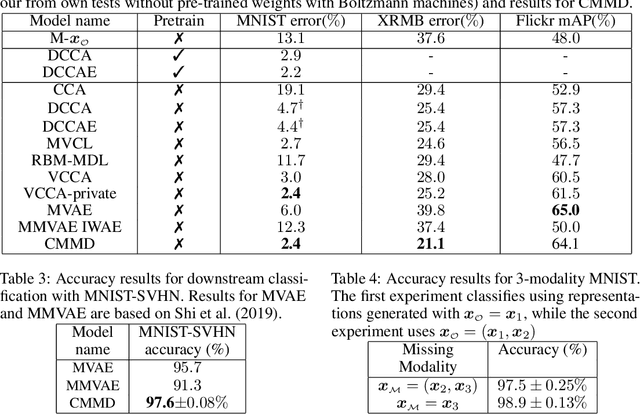Discriminative Multimodal Learning via Conditional Priors in Generative Models
Paper and Code
Oct 09, 2021



Deep generative models with latent variables have been used lately to learn joint representations and generative processes from multi-modal data. These two learning mechanisms can, however, conflict with each other and representations can fail to embed information on the data modalities. This research studies the realistic scenario in which all modalities and class labels are available for model training, but where some modalities and labels required for downstream tasks are missing. We show, in this scenario, that the variational lower bound limits mutual information between joint representations and missing modalities. We, to counteract these problems, introduce a novel conditional multi-modal discriminative model that uses an informative prior distribution and optimizes a likelihood-free objective function that maximizes mutual information between joint representations and missing modalities. Extensive experimentation shows the benefits of the model we propose, the empirical results showing that our model achieves state-of-the-art results in representative problems such as downstream classification, acoustic inversion and annotation generation.
 Add to Chrome
Add to Chrome Add to Firefox
Add to Firefox Add to Edge
Add to Edge